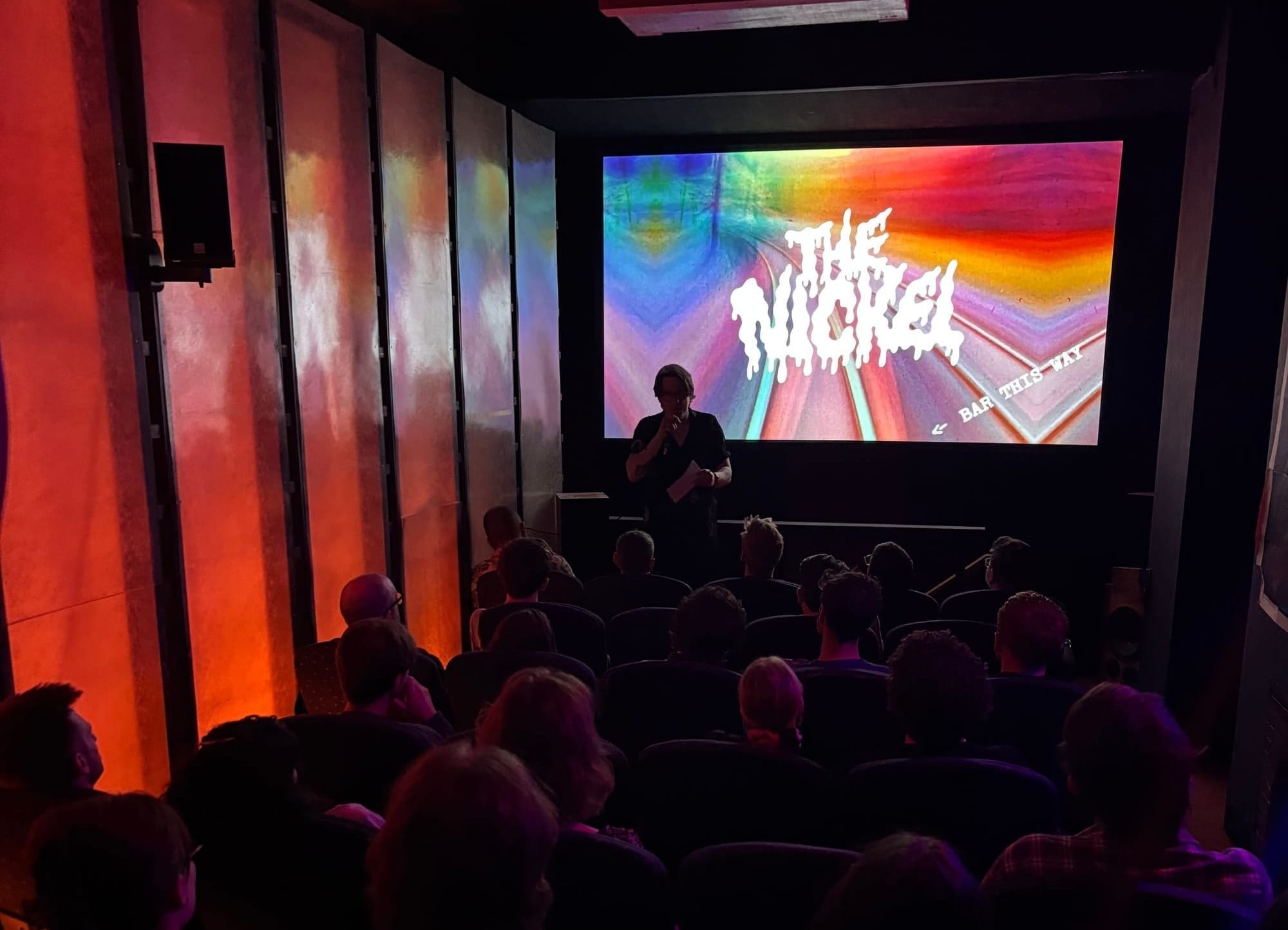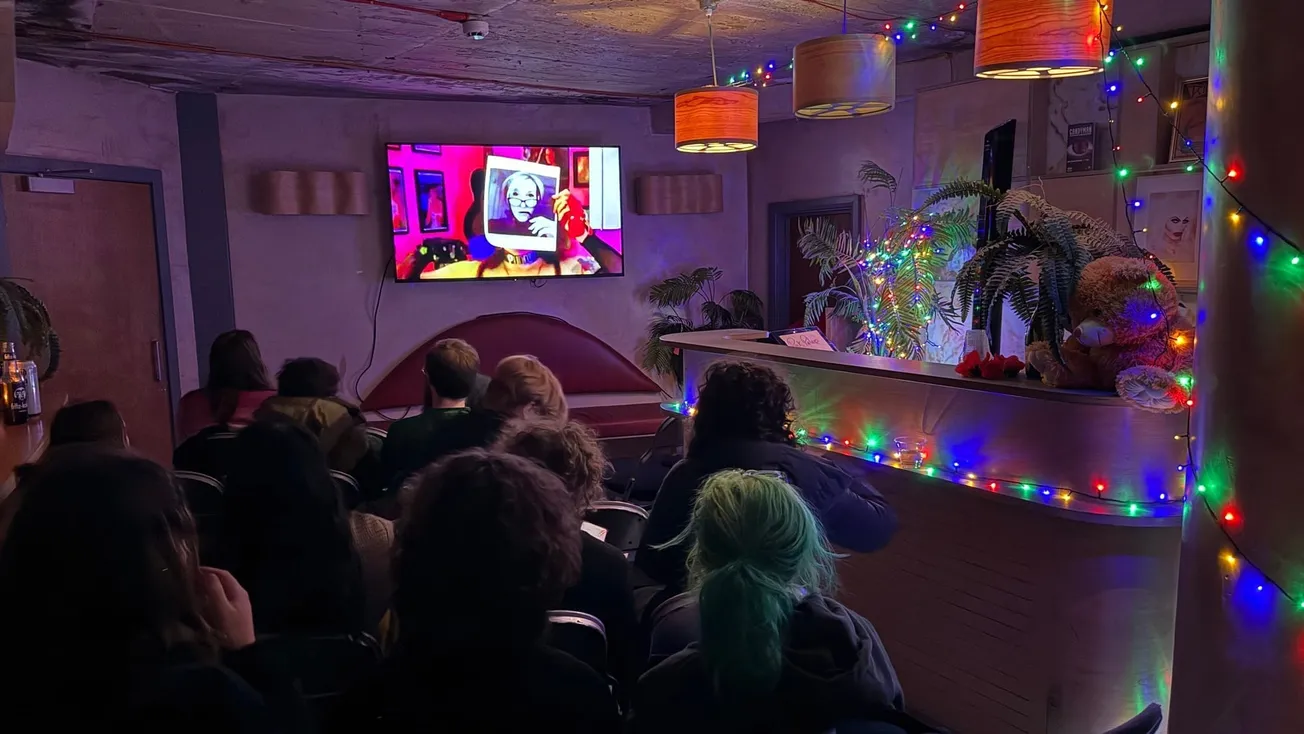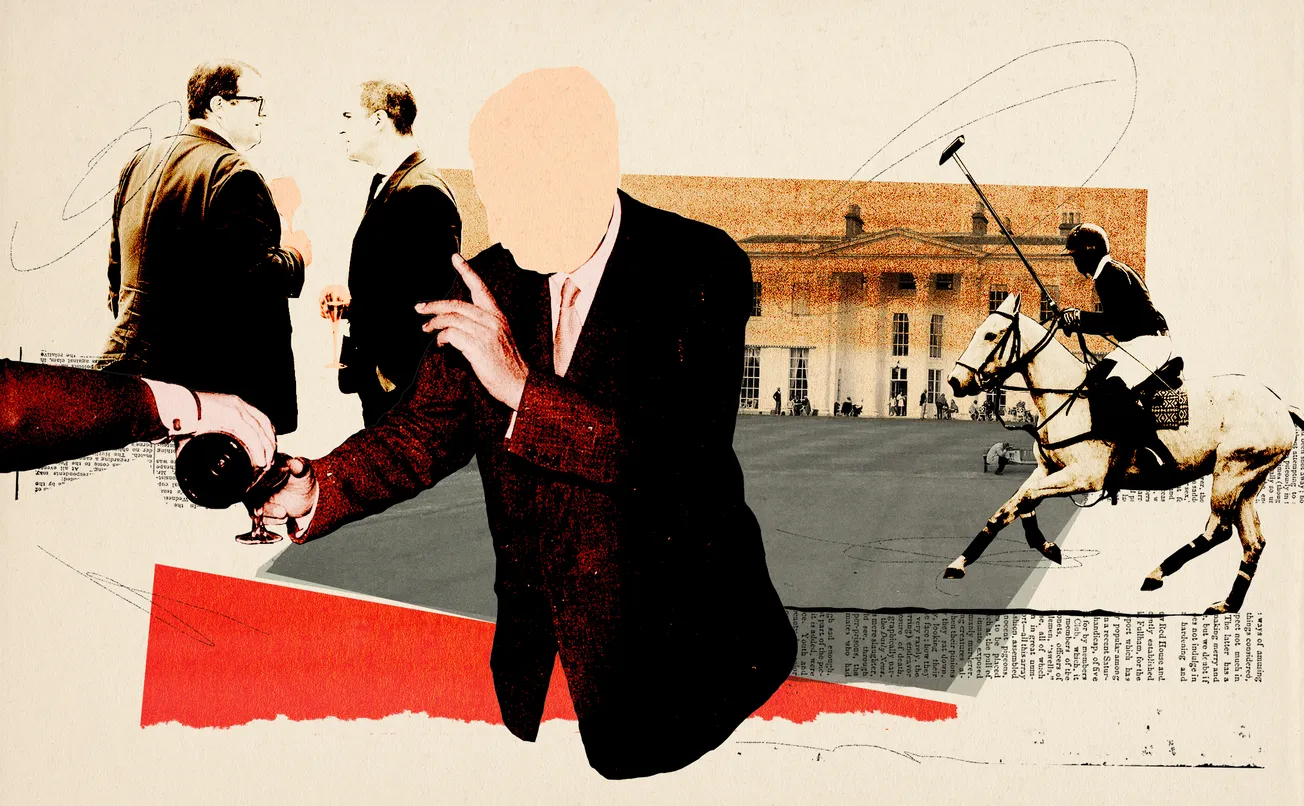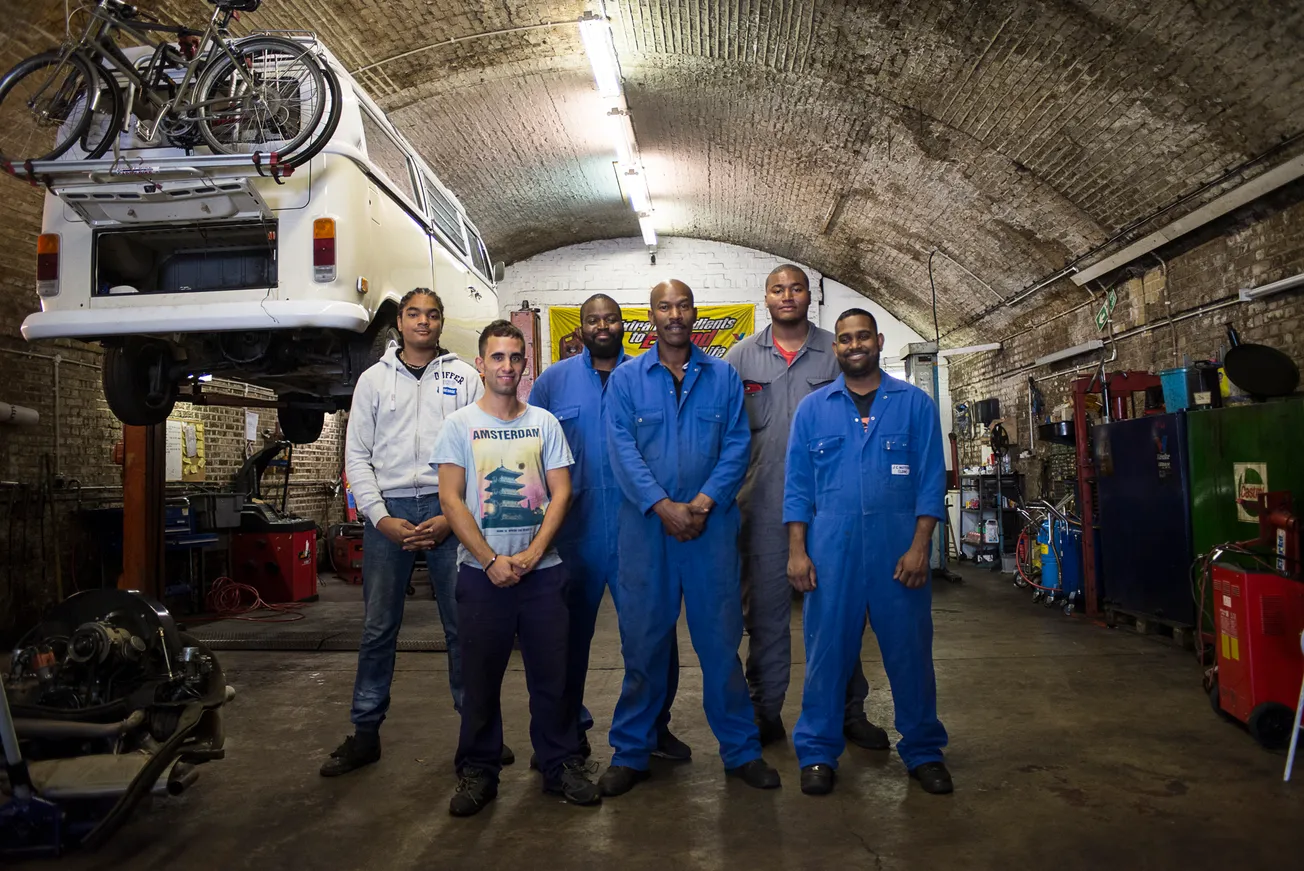To read all of today's piece, you'll have to be a paying supporter of The Londoner. We do this because researching and reporting our stories takes a large amount of time and resources, and we need to become financially sustainable. If you enjoy what we're doing, consider backing us for just £4.95 a month for the first three months. Becoming a supporter puts you at the vanguard of a media revolution, as well as giving you access to all of our members-only content — like the story below.
It’s a Tuesday night in Farringdon, and I’m in a shabby basement bar decorated with pin-ups, Lou Reed posters, newspaper cuttings warning of a “boom in false beards” and guerrilla-style filming equipment. 1980s grungy rock and Dusty Springfield blasts through the speakers. Ahead of 6pm, when the main event is due to start, ticket-buyers are sauntering in wearing slick tailored suits, trilbys, gothic capes and bobs with finger waves. Just as an amplified voice summons us upstairs, two people emerge together from the only toilet (adorned with a raunchy “Folies de Paris et de Hollywood” poster); no one bats an eyelid.
This is not a club night, open mic or cabaret show. It’s a film screening at the Nickel, one of London’s youngest cinemas, which prides itself on a programme of subversive, salacious movies you’ve probably never heard of. These are the kind of films “you wouldn’t watch with your mum”, as Ryan, who is working on the bar this evening, tells me rather sincerely. Rather than its usual grindhouse fare, however, tonight is a “more mainstream” double bill of pre-Code classics, both about “lost girls” (i.e. promiscuous women) in 1920s Germany.

The Nickel is one of two new cinemas dedicated to repertory films — in simple terms, meaning anything re-screened after its general cinema release — that have opened in London this year. The other is the Arzner, which is devoted to showing queer films. These venues attract someone a league apart from your average cinemagoer: they are fervent, often cosplaying and, some would say, even a little culty. Though the crowd here are about to sit in silence for the next hour or so, the atmosphere is lively and heady, somewhere between an acid house night and Comic Con.
“Some of them treat it like a kind of church,” says the Nickel’s founder Dom Hicks, who has tousled, shoulder-length brown hair and, appropriately, is wearing all black. “I can see people three, four times a week, which is crazy dedication.” When I point out the occult merch scattered around, Hicks promptly moves it out of sight, concerned it gives the “wrong impression” to a visiting journalist, before confessing they did consider holding a “satanic” screening in the basement room.
London deserves great journalism. You can help make it happen.
You're halfway there, the rest of the story is behind this paywall. Join the Londoner for full access to local news that matters, just £8.95/month.
SubscribeAlready have an account? Sign In







